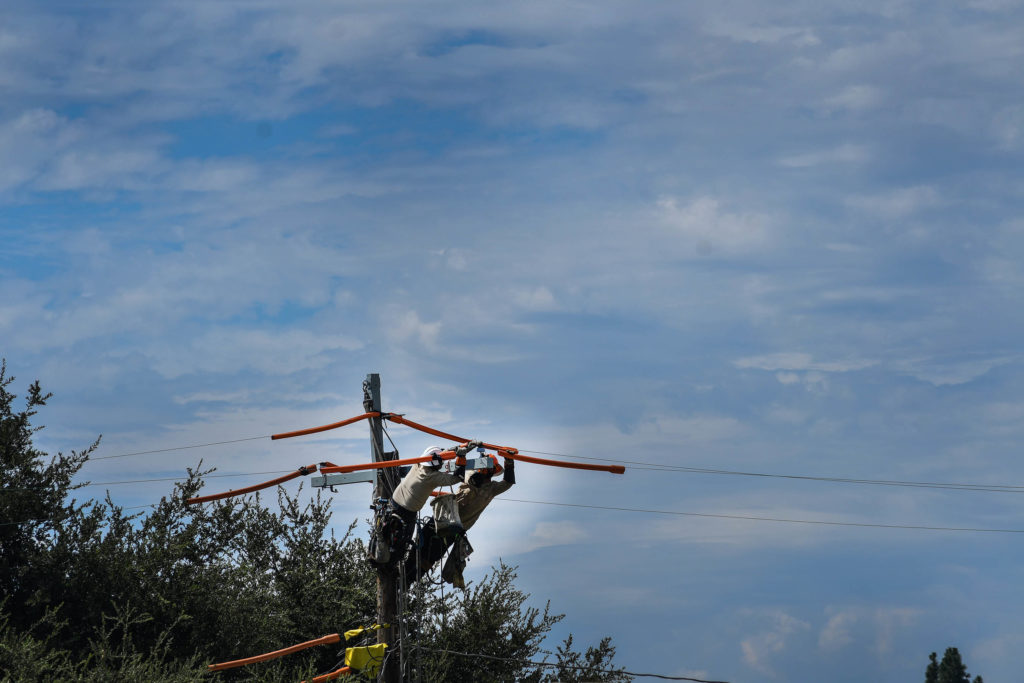A golden opportunity to point out to our stakeholders the massive benefit of having a municipally owned water & power utility. A Boardmember firmly agrees with the flex alert requirements, but isn’t it comforting to know that LADWP has NEVER (NOT ONCE) enforced the rolling blackouts that PG&E, SDG&E and Edison have been required to make?
LOS ANGELES (August 16, 2020)–After a weekend of extreme heat and more high temperatures in the forecast, the California Independent System Operator (CAISO) has issued a statewide flex alert beginning today from 3 p.m. to 10 p.m. and extending through Wednesday. A flex alert is a call for voluntary electricity conservation during peak hours to lessen the strain on the state’s grid. CAISO had also issued a flex alert on Friday.
While the Los Angeles Department of Water and Power (LADWP) has adequate supply to meet its customer demand and emergency reserves at this time, we join CASIO in urging customers to conserve energy to help the state grid and reduce the strain on neighborhood distribution systems. Extreme heat conditions, including very high nighttime temps that provide little relief to strained equipment, can cause equipment to fail, leading to power outages.
In order to help lessen the strain on neighborhood electrical infrastructure and help out the state grid, we recommend the following tips to save energy:
- Adjust air conditioning thermostats to 78 degrees to reduce energy usage during the hottest hours of the day when air conditioning systems have to work the hardest to cool. If you are away from your home, turn your air conditioning systems off.
- Reduce power use during the afternoon/early evening hours from 3:00 to 10:00 p.m. when energy use is highest.
- Limit use of major appliances during peak hours of the day. Use washing machines, dishwashers, vacuum cleaners and other heavy appliances during the early morning hours or during evening hours.
- Ventilate the home in the early morning and evening by opening windows and doors to clear out the heat and allow cooler air to circulate. Close window curtains, shades or blinds during warmer hours to reduce the extra heat from direct sunlight coming through windows.
- Turn off lights and other electrical equipment when they are not in use.
- Unplug “energy vampires” like cell phone chargers, microwave ovens and other appliances that use energy even when not in use.
- Order takeout if possible to avoid using the stove and range, helping to keep temperatures down indoors.
LADWP crews have been working around the clock to restore small localized power outages caused by extreme heat and electricity demand. Crews are working as quickly and safely as possible, and will work around the clock responding to outages. As of 5pm, Sunday, approximately 4,800 customers out of 1.5 million total were without power. The largest current outage is in Leimert Park, where 2,700 customers are affected. Crews have been working to restore this outage and others. Power has been restored to over 6,000 customers since the heat storm began Friday night. The hottest areas of the West and Northeast San Fernando Valley have been the neighborhoods most affected.
LADWP will continue to provide information to our customers during the heat wave through various channels. Staff is providing information from the field on social media as well as communicating with customers via our call centers. Should an outage occur, customers can report it at www.ladwp.com/outages. Customers may also call 1-800-DIAL-DWP to report any outage. We share updates on Twitter (@LADWP) and NextDoor.com.
In case of a power outage, here are tips for all customers on how to be ready and what to do:
- Keep a flashlight and extra batteries nearby. Never use candles in a power outage or other emergency.
- Keep a fully charged cell phone on hand. During power outages, you may lose phone service and your cordless “land line” may also lose power.
- Switch off all lights, except for one, so you will know when your power has been restored.
- Turn off and unplug electrical equipment and appliances like computers, stereos, televisions and air conditioners, and heat-producing items such as irons or hot plates. This helps to prevent circuit overloading, which could delay restoration of service.
- Keep refrigerator and freezer doors closed to protect their contents.
And remember, never touch a downed power line. Instead call 911.

